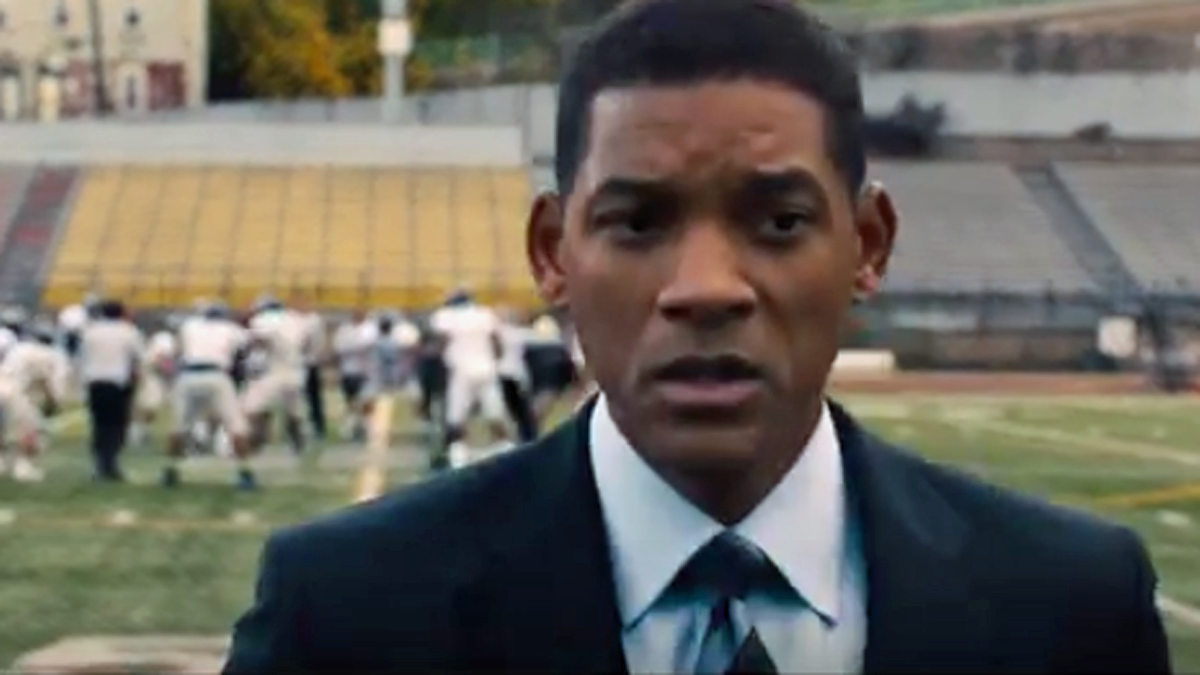Important story on brain injury, filtered through Hollywood lens

A scene from the 'Concussion' movie trailer, starring Will Smith portraying physician Bennet Omalu (Image via Youtube/Concussion)
Actor Will Smith is headlining a new bio-pic called “Concussion” that hit theaters Christmas Day.
The movie, set in the early 2000s, is the story of a Nigerian-born pathologist who pushed the National Football League to recognize the brain-injury risk that professional players face.
It’s a true story. But brain researcher Douglas Smith, who leads the Center for Brain Injury and Repair at the University of Pennsylvania, says the marketing of the movie is a bit fuzzy on the facts.
In the movie trailer, a grim-faced Will Smith — portraying physician Bennet Omalu — says: “I found a disease that no one has ever seen. Repetitive head trauma chokes the brain.”
Omalu was describing chronic traumatic encephalopathy.
“The tagline suggests that something new was discovered, what really was discovered is that the same pathology that we see in boxers and hockey players also occurs in American football players,” Douglas Smith said. “Something about his discoveries finally caught the public’s interest.”
In about 20 percent of concussion cases, people have trouble getting back to work or school, he said. Researchers at the University of Pennsylvania have isolated a biomarker that might help neurologists figure out which patients are likely to have lingering problems.
“If you see this protein [called SNTF] in the blood, that means axons died. That is permanent brain damage in an injury that was formerly thought of as kind of a right of passage in adolescents,” said Smith — no relation to movie star Will Smith.
Axons are the electric grid of the brain. “They are very vulnerable to damage,” Smith said.
Not every concussion causes permanent brain damage. The vast majority of patients recover well.
Sean Grady, chief of neurosurgery at Penn Medicine, cares for people who are struggling to get back to normal life.
Cognitive and physical rest is the standard treatment for concussion, he said, but there are no prescription drugs that are approved to help.
Grady said while rest is the prescription clinicians have to offer for concussion, its efficacy hasn’t actually been proved in gold-standard studies.
Identifying people with a higher risk for memory or problem-solving troubles would increase the chances that those patients will receive more intense followup or rehabilitation, he said.
WHYY is your source for fact-based, in-depth journalism and information. As a nonprofit organization, we rely on financial support from readers like you. Please give today.

